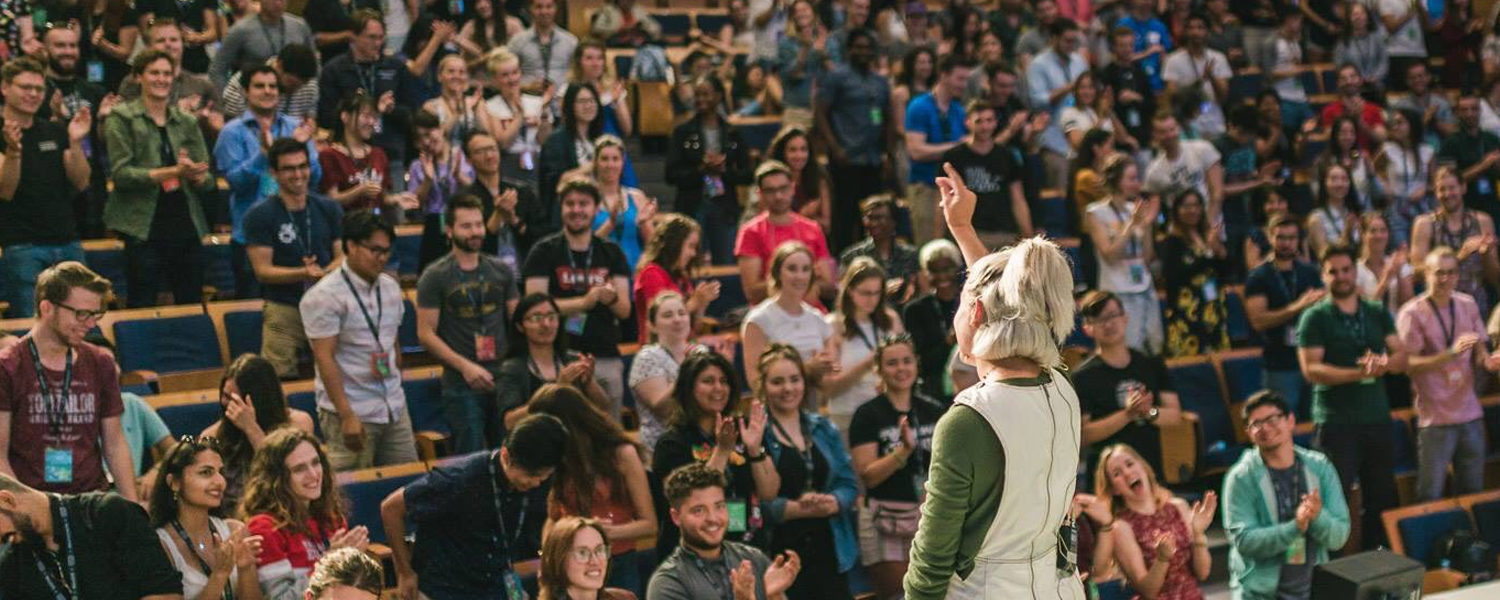
From Idea to Startup
by Deb Cummings
In an attempt to nurture entrepreneurial thinking across faculties, last summer, UCalgary participated in a prestigious program in Portugal called the European Innovation Academy (EIA).
The Haskayne School of Business and the Hunter Hub for Entrepreneurial Thinking accepted 15 students from three faculties who then spent 15 days in Portugal’s capital, Lisbon, fully immersed in a wildly intense international startup environment.
Partnering with some of the planet’s most ambitious entrepreneurial institutions such as Stanford University, UC Berkeley and Google, EIA’s mission is to guide 1 million entrepreneurs through its programs by 2022. Curious about how, exactly, one turns ideas into startups in a little more than two weeks, we checked in with two UCalgary undergrad students, Mateo Montero (fourth-year psychology and marketing major) and Linda Zhu (fifth-year business student). Here’s what they had to say:
What is it like to be with the same 500 EIA participants for 15 intense days?
Mateo: It felt as if I was trying to quench my thirst by drinking from a fire hose. I wanted to meet as many people as possible, but I was quickly overwhelmed by the sheer number of participants — but so pleased that everyone, no matter their language or cultural background, was as open as they were.
What does a typical day look like?
Mateo: At 10 a.m., everyone gathers in a large auditorium in Lisbon to listen to amazing keynote speakers for two hours. Following that is lunch and then teamwork at 1 p.m. During that time, mentors and life coaches would come around to answer our questions, provide professional guidance and keep team dynamics in check. Throughout the afternoon, there would be private mentoring sessions in workrooms where we could get specific mentoring in either design, marketing or pitching. As a team, we had the freedom to do all our mentoring right away, then focus on our own work the rest of the day, or vice-versa.
What was the most challenging part?
Linda: Teamwork. Initially, during the ideation stage, it was helpful to have diversified perspectives, but what became an issue was trying to make a unified decision. It is actually very difficult to incentivize a team of very passionate and motivated individuals and I found it hindered our productivity when time was needed to be spent to ensure team cohesiveness.
What makes the experience unique?
Linda: It exposes students to a different economic market and political landscape. During the second week, I went to Lisbon’s largest hospital to conduct interviews, so the interactions I had with locals would not be able to be replicated elsewhere.
Will this experience alter how you study, do business, view life?
Linda: This experience altered my perception of cultural and language barriers. It showed me that, as long as the vision is well-defined, and that you are vested in making things happen, then you will attract individuals who will support and work with you, even if there are personal differences.

EIA participants — (L-R): Belen Castillo (UC Berkeley), Tomas Ribeiro (University of Porto), Matthew Mannion (Eckerd College, Florida), Mateo Montero (UCalgary), Sophia Bendorf (UC Berkeley).

European Innovation Academy
Explore more

A University Without Borders
From war zones to Canada, follow three harrowing journeys that gave passage to global ambitions.

2018 Arch Award Honorees
What was the pivotal moment that made these five extraordinary alumni swerve down an alternate path?

What’s Happening Across Campus
Why open your doors to international students; what makes subs cult-worthy; cool classes and more.

Can’t Get Enough?
From intercultural classrooms and study abroad programs to career paths and life in Qatar — our international issue is here.
